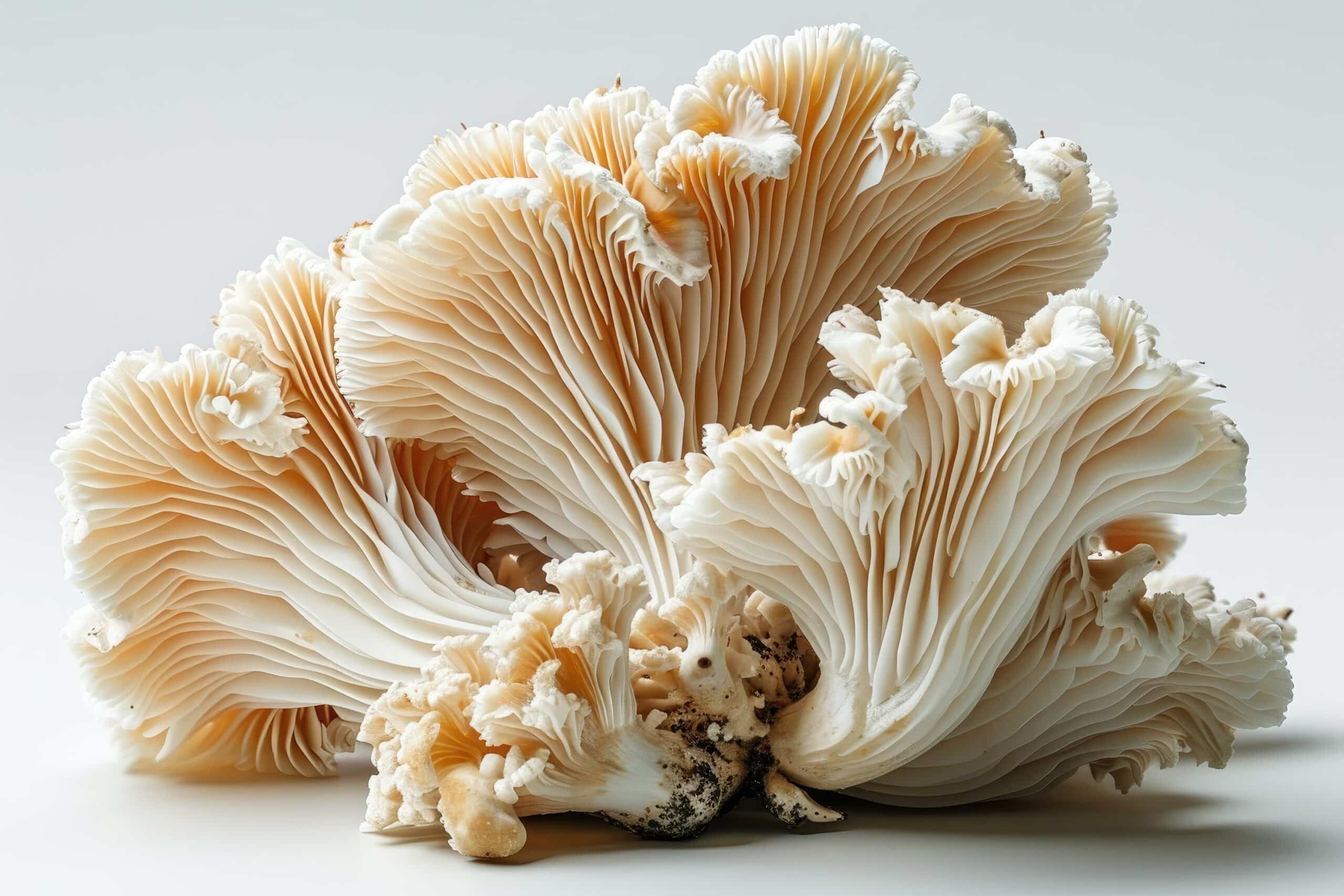What Enables a Mushroom to Nourish Itself During Growth?
Key Takeaways
- Mushrooms obtain nutrients through their mycelium, which absorbs organic material from the environment.
- Mushrooms break down complex organic matter using enzymes secreted by their mycelium to absorb essential nutrients.
- Mushrooms primarily obtain nutrients from their surroundings, such as soil and organic matter, and can also produce their own nutrients through photosynthesis.
When it comes to the growth and development of mushrooms, a key question arises: how do these fascinating fungi nourish themselves? Mushrooms have a unique way of obtaining nutrients, and in this article, we will delve into the various mechanisms that enable mushrooms to nourish themselves during their growth process.
The Role of Mycelium
To understand how mushrooms nourish themselves, we must first explore the role of mycelium. Mycelium is the vegetative part of the fungus and serves as the primary source of nutrient absorption for mushrooms. It is a network of thread-like structures that grow underground or within the substrate.
Mushrooms are heterotrophic organisms, which means they rely on other organisms for their metabolism and nutrition. They cannot produce their own food through photosynthesis like plants do. Instead, mushrooms obtain nutrients by absorbing organic material from the environment through their mycelium.
Nutrient Absorption Process
Mushrooms break down complex organic matter into simpler compounds using enzymes secreted by their mycelium. These enzymes help in the decomposition of organic material such as dead plants, wood, and animal remains. As the mycelium secretes enzymes, it breaks down the organic matter into smaller molecules that can be easily absorbed by the mushroom.
During this process, mushrooms absorb a variety of nutrients essential for their growth and development. Some of these nutrients include carbohydrates, nitrogen, vitamins, minerals, phosphorus, potassium, calcium, water, and oxygen.
Obtaining Nutrients from the Environment
Mushrooms obtain nutrients from their surroundings, primarily from the soil and organic matter in which they grow. The mycelium acts as a network of nutrient-absorbing roots, extracting water and nutrients from the soil or substrate.
Additionally, mushrooms are capable of producing their own nutrients through the process of photosynthesis, although they primarily rely on absorbing nutrients from their surroundings. Photosynthesis in mushrooms occurs when they are exposed to light, allowing them to convert sunlight into energy and produce carbohydrates.
The Process of Mushroom Growth
Understanding the process of mushroom growth can provide further insights into how mushrooms nourish themselves. The growth of mushrooms involves several stages:
- Spore Germination: The process begins with the germination of spores, which are the reproductive cells of mushrooms. Spores are released into the environment and, under favorable conditions, germinate to form mycelium.
- Mycelial Expansion: Once the spores have germinated, the mycelium starts growing and expanding. The mycelium spreads and colonizes the growing medium, breaking down organic matter and absorbing nutrients.
- Hyphal Knot and Primordia Formation: As the mycelium continues to grow, it forms clusters known as hyphal knots. These knots develop into primordia, which are the initial stages of mushroom formation.
- Fruitbody Selection and Maturation: From the primordia, the mushroom fruitbodies are selected and matured. This stage involves the development of the cap and stem, as the mushroom prepares to release its spores.
- Spore Release: Once the mushroom reaches maturity, it releases spores into the environment, completing the life cycle of the fungus.
Ensuring Proper Nourishment and Growth
To ensure proper nourishment and growth, it is crucial to provide the right conditions for mushroom cultivation. This includes choosing the right type of mushroom, preparing the substrate (the material the mushrooms will grow on) by sterilizing it, and inoculating the substrate with spawn, which serves as the seed material for the mushrooms.
Proper incubation of the substrate allows the mycelium to grow and spread, enabling the mushrooms to fruit and develop. Harvesting the mushrooms at the right time and storing them properly also play a significant role in maintaining their freshness and nutritional value.
Conclusion
In conclusion, mushrooms nourish themselves during their growth primarily through their mycelium, which absorbs nutrients from the environment. They break down complex organic matter using enzymes secreted by the mycelium and absorb the necessary nutrients for their growth and development.
Understanding the process of mushroom growth and the importance of providing the right conditions for cultivation can help ensure a successful harvest of nutritious and delicious mushrooms.
Related Websites:
- Mushroom Good – How Do Mushrooms Get Their Food?
- Verywell Fit – Mushroom Nutrition Facts, Calories, and Health Benefits
- Magic Mycology – What Nutrients Do Mushrooms Need?
- Cornell University – How to Grow Mushrooms: A Beginner’s Guide
- Bootstrap Bee – Stages of Mushroom Growth
- Mushroom Growing – Mushroom Growth Stages
- Out-Grow – Mushroom Substrate Nutrients
- Real Mushrooms – Mushroom Life Cycle Features
FAQs:
Q: What are the essential nutrients required for mushroom growth?
Mushrooms require organic matter and decomposed materials as essential nutrients for growth. They derive energy from carbohydrates, and proteins, fats, and micronutrients also play a crucial role in their growth.
Q: How does mycelium contribute to mushroom growth?
Mycelium, the vegetative part of the fungus, serves as the feeding network for mushrooms. It absorbs and transports nutrients to support the growth and development of mushrooms.
Q: Do mushrooms have a symbiotic relationship with plants or trees?
Yes, mushrooms have a symbiotic relationship, known as mycorrhizal associations, with plants or trees. They exchange nutrients with their host plants, benefiting both parties involved.
Q: What environmental factors impact mushroom nutrition?
Temperature, humidity, proper airflow, ventilation, and light exposure are environmental factors that can impact mushroom nutrition. Understanding and maintaining these factors are crucial for successful mushroom cultivation.
Q: Why is it important to understand how mushrooms nourish themselves during growth?
Understanding how mushrooms nourish themselves during growth is essential for successful cultivation. It allows growers to provide the optimal conditions and nutrients necessary for healthy and abundant mushroom harvests.






